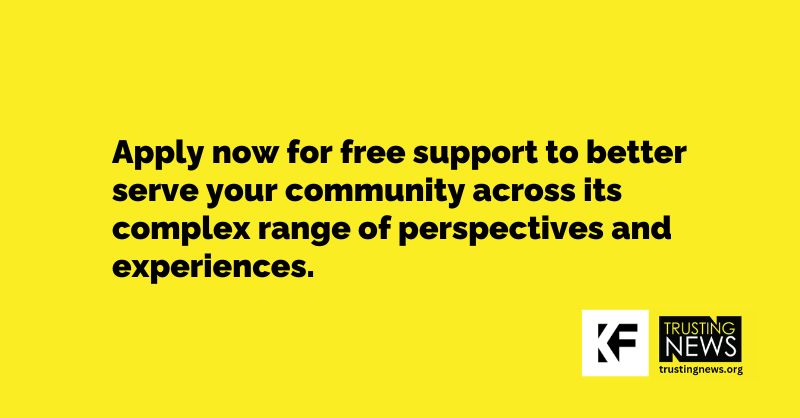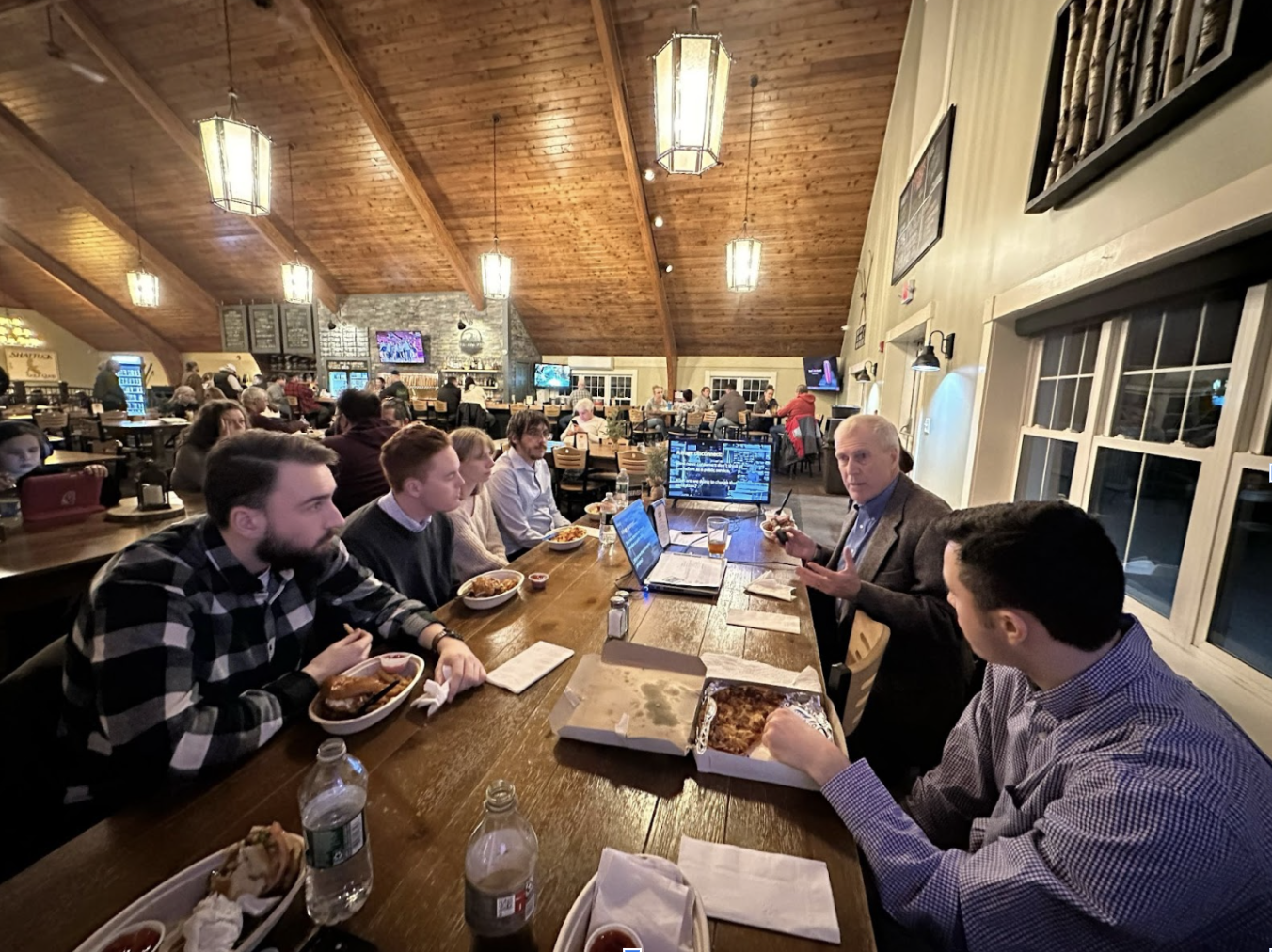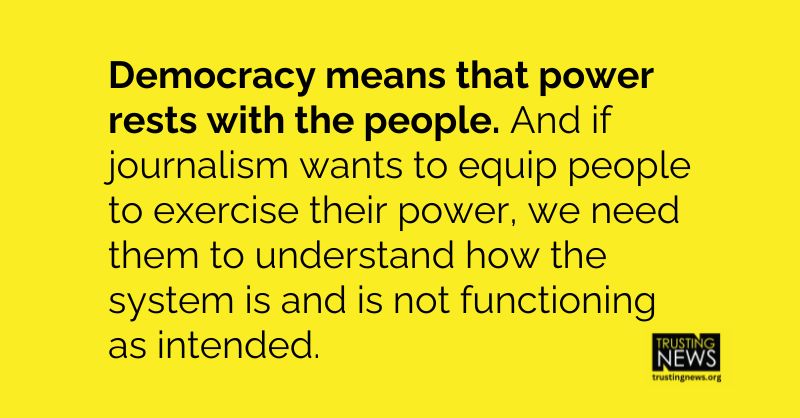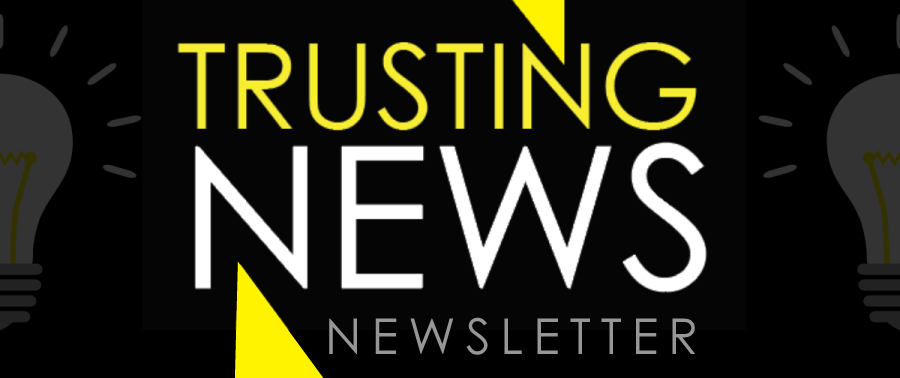
This weekly Trust Tips newsletter shares quick, actionable tips for how journalists can earn and sustain trust. Subscribe to get it in your inbox at trustingnews.org/newsletter.
Trust Tips: Get curious about your community with new administration
Want to get this Trust Tips newsletter in your inbox each Tuesday? Subscribe here.
As we prepare for a second Trump administration, so many of my conversations with other journalists have included some version of the sentiment “here we go again.” As an industry, that of course makes sense. It’s reasonable for us to be gearing up for an increased need for fact-checking, a rise in hostility and threats against journalists, and a more chaotic information landscape. All of that makes our jobs more difficult — and more vital — and also takes a personal toll.
There’s a danger, though, when the “here we go again” frame shows up in coverage more broadly. It can take on an adversarial tone — the media against Trump.
Trump’s threats against and posture toward facts and news are worth covering, of course. Trump IS attacking the media in a lot of ways, and the public needs to know that. But how can journalists avoid coverage that is or is perceived as being anti-Trump more broadly?
Our suggestion: Remain deeply focused on and deeply curious about your community. What hopes and fears are the people you aim to serve bringing into a second Trump administration, a new Congress, a new legislature and a new era?
We all see the world through our own lens. Someone afraid about their family’s security given the current immigration climate is prioritizing that perspective and might have a hard time understanding why someone else is prioritizing funding for law enforcement, climate change or health care policy.
One concern I voiced after the election was that journalists would assume too much about why people voted for Trump. And unless your target audience area doesn’t include Trump voters — and you don’t value telling nuanced, accurate stories about them — this is an issue you should be grappling with.
Let’s move beyond how people voted and what people are “for” or “against” and instead lean deeper into our curiosity. This is a good time to revisit the principles behind The Citizens Agenda approach to coverage. Ask your community what they want their public officials to be focusing on, then base your coverage on those things — NOT on what the people in power prefer as talking points.
Start with asking better questions.
Don’t ask people if they’re happy with how the election went. Ask them what they hope to see. Focus on whatever makes the most sense for your coverage — a new county commission, legislative session (which we wrote about earlier this month), Congress, or presidential administration.
Try questions like:
- What are you optimistic about?
- Whose lives do you hope are improved?
- Do you think your life will improve, based on your identity, neighborhood, job, etc.?
- What are you afraid might happen?
- Whose lives are you worried will get worse?
- Do you feel threatened at all, based on your identity, neighborhood, job, etc.?
Reflect nuance and complexity in your stories.
Use what you hear to build curiosity rather than reinforcing lazy narratives. The story of our time is not one monolithic group of people versus another, yet our coverage too often paints that picture. Most people contain multitudes. Most of us hold views that might seem contradictory to others. Do your stories capture the contradictions? Use our Anti-Polarization Checklist as you think about framing, sourcing and word choice.
Consider the question our team loves to ask: Who feels seen and understood by your coverage, and who feels neglected or misunderstood? If you’re not sure, it’s probably time to invest in some deep listening.
Then turn the answers into accountability coverage.
Once your community has told you their hopes and fears, use that to plan interviews with and coverage of public officials.
First, make sure your coverage explains what can actually be done, and by whom. If people are concerned about the economy, what levers can be pulled at what level of government to make a difference? Who locally is helping local businesses or working on affordable housing? Who at the state level is working on tax policy? If access to health care is a primary concern, what is reasonable to expect from the county health board, the state health department, the legislature, or Congress?
Then, plan your accountability journalism around the agenda set by your community. Circle back on the issues they told you matter most. Frame your interviews around their concerns and hopes, and use the language they use. Try keeping specific people in mind as you work — be their representative as you use your access and privilege to get answers.
Don’t forget transparency!
Explain your approach and how it connects to your mission and priorities. Remind people you’re focusing on this work because they said it was important to them, and offer ways to give feedback.
If you’re not sure where and how to talk publicly about your process, our Transparency Trust Kit is the place to start.
At Trusting News, we learn how people decide what news to trust and turn that knowledge into actionable strategies for journalists. We train and empower journalists to take responsibility for demonstrating credibility and actively earning trust through transparency and engagement. Learn more about our work, vision and team. Subscribe to our Trust Tips newsletter. Follow us on Twitter, BlueSky and LinkedIn.
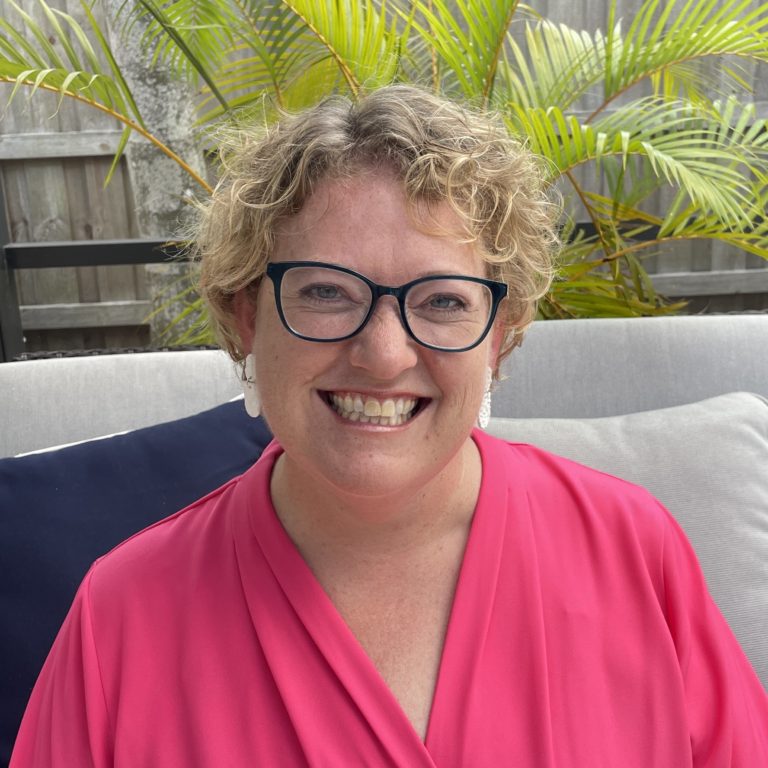
Executive Director Joy Mayer (she/her) founded Trusting News in 2016 after a 20-year career in newsrooms and teaching. She lives in Sarasota, Florida, and can be reached at joy@TrustingNews.org.
